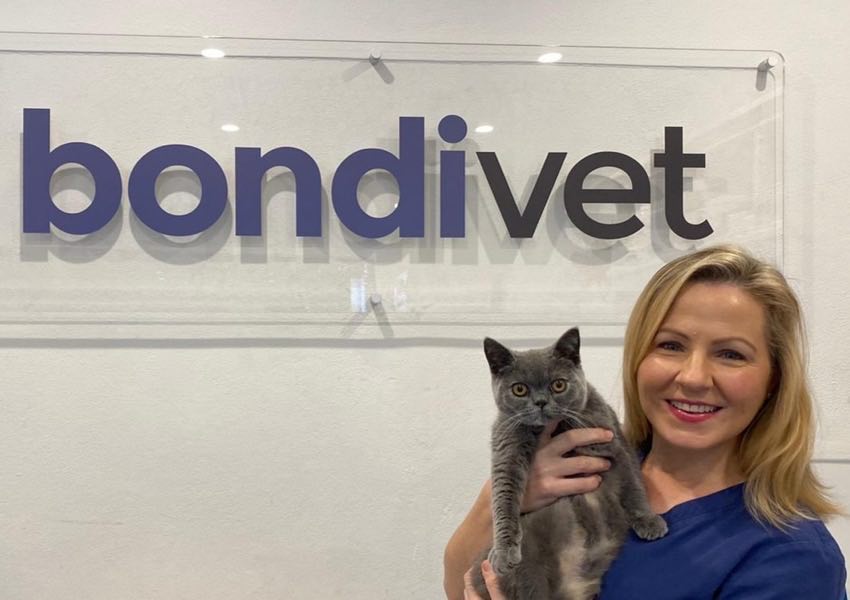
Who Locked The Pets Up

By Rida Babar
During the COVID-19 lockdowns one good thing that came about was pets and pet owners being able to spend more time together. However, the time has come when most owners are returning to work and are dealing with the major question: how to prepare their furry friends for business as usual?
As restrictions begin to lift, pet owners, both new and old face the difficult preparation of leaving their little animals. According to Dr Angela Nehring of Bondi Veterinary Hospital, “animals are going to get separation anxiety, which is basically pets becoming dependant on their humans for happiness.
“When owners go back to work, the pets are going to panic because they need their human parents for their happiness. We’ve got to get these animals used to loving their own company and being independent, so when owners are at work, they’ll be happy.”
Dr Nehring suggested two main tips for preparing pets for this change. “You’ve got to get them into your routine. Say, you’re going to work at certain days and times each week. Try and ignore them at home during those times so they’ll get into the mindset of playing with their toys or taking a nap instead of being dependant on you.
“Secondly, if you walk them before and after work, start walking them at those specific times so they get used to that structure and routine.”
When asked which animals would be at most risk of not adapting well, Dr Nehring said “Little dogs. No breed in particular, but any dog that is well loved. We see a lot of cavoodles in Bondi, and I think they’re too well loved!”
Dr Nehring also provided insight into what can happen if an owner does not adequately prepare their pet(s) for a normal post-COVID routine.
“When the owner is at work, the pet will be at home fretting. What this means is that the animal will start to panic and start engaging in destructive behaviour like tearing up furniture, ripping off skirting boards and chewing furniture. The animal is suffering, wondering where their human parents have gone.”
Bondi Veterinary Hospital was operational during the COVID-19 lockdowns, and had a lot of people coming in, according to Dr Nehring.
In last words of advice, Dr. Nehring said, “dogs who are quite anxious at home and can’t really be left alone because they have become so dependent on humans can go to doggy day-care, or can be left with dog-walkers, or they can seek veterinary help.
“We’ve got veterinary psychiatrists and psychologists. Some of the pets even need medication because they get so bad.”
Dr Nehring stressed the importance of preparing pets, especially dogs for life after lockdown.
While in lockdown, Australian pounds have actually increased in the amount of animals that have been adopted.
Tehreem Imran, a local Sydney teenager bought a cat during the COVID-19 lockdown. She said that she had always wanted a cat, and after the COVID-19 lockdowns began to take a toll on her and her family’s mental health, they decided to get one.
She has not yet made any preparations for her cat to adjust after lockdown, as “by that time he’ll be a lot older and will be able to take care of himself.” Expert veterinarians agree that cats tend to be much more independent animals in comparison to dogs.
The love for furry pets has even spanned as far as the University of New South Wales, where students have ‘adopted’ the fox living on campus as their collective own, even going as far as to name him Frankie and the university creating official merchandise for the fox.
As well as the mental wellbeing of pets, it is also important to consider basic health management, which many people may have overlooked whilst busy with other things in light of these uncertain times.
Paralysis ticks and flea prevention for cats and dogs is vital, especially during lockdown to avoid a household outbreak. Experts have warned that flea reproduction is just as prevalent in winter as pets tend to spend more time in enclosed heated places.
Dr. Nehring explained, “Seeing one flea is just the tip of the iceberg. Home infestation can happen extremely quickly, and I have had many patients who have ignored the first signs of fleas with disastrous results for them, their pets and their home.”
As well as keeping a close eye on changes in pets behaviour which would indicate fleas, and regular checks, Bravetco is a long lasting preventative treatment, offering six months protection for dogs. It is also the longest lasting flea treatment for cats in Australia, protecting them for up to three months.
Overall, it is important to remember the needs and wellbeing of pets during this time of change.









